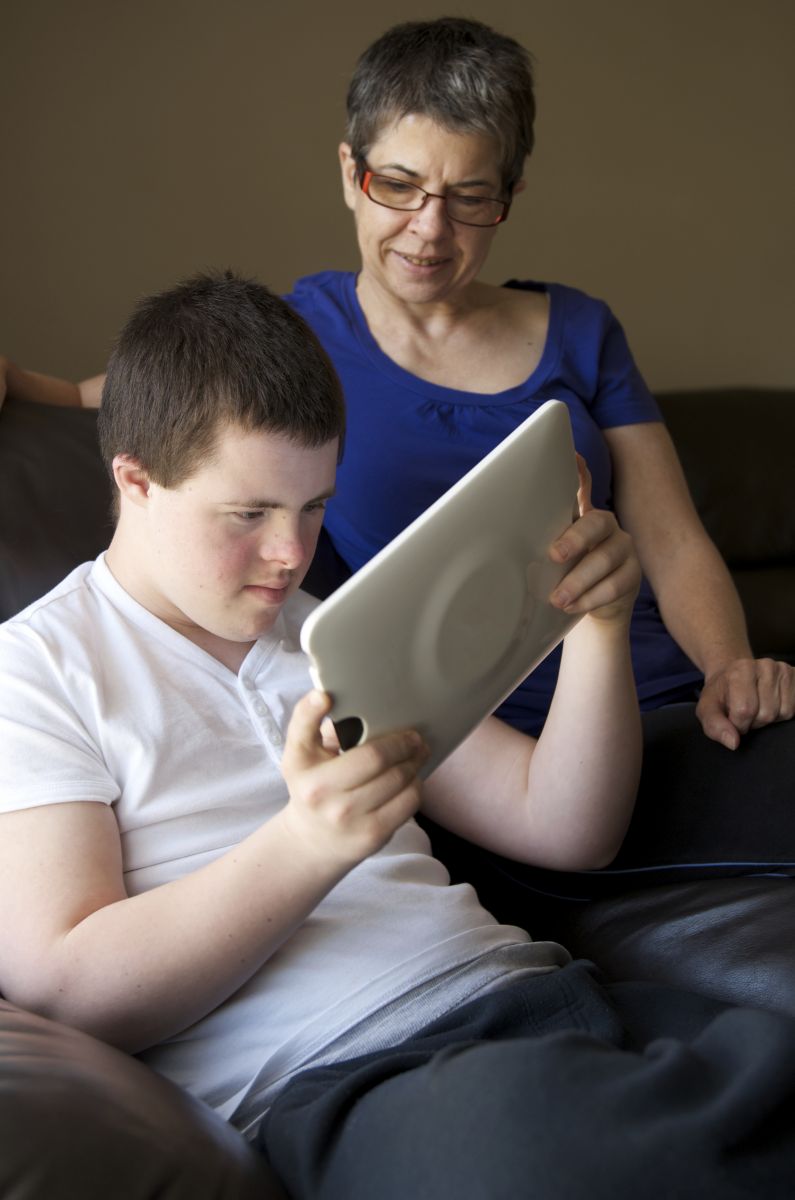Augmentative and Alternative Communication (AAC) Resources
Augmentative and Alternative Communication (AAC) is defined as the use of other methods to replace or support verbal communication.
Phone/iPad Apps and Resources for Autism
Listing of Apps with links to reviews (pdf)
Links to lots of other sites, including grant resources compiled by a parent, an adult with autism, and a speech language pathologist.
Apps for Augmentative and Alternative Communication (ACC)
With so many AAC apps available through the App Store, the Spectronics Consultancy Team would like to provide you with some tips and tools to help you find the right app.
Resources – Apps, Funding, Insurance, Training and Grants
iTaalk educates on the beneficial uses of assistive technology and includes specific advice about trying to get insurance to cover iPads.
Utilizing Mobile Technology for Children with Autism Spectrum Disorder
Verizon Wireless has information and a list of apps for children with autism.
iPad Funding
Frequently Asked Questions (FAQ) about Augmentative and Alternative Communication (AAC) Devices (.pdf)
AAC devices aid communication for people with severe expressive communication
impairment due to developmental and acquired conditions including, but not limited
to, cerebral palsy, autism, aphasia, and amyotrophic lateral sclerosis. This FAQ will
focus on non-dedicated devices.
Funding For iPads from Autism Society
Courtesy of the Autism Society’s contact center, Autism Source, the list below includes organizations that offer grants and other assistance for children with autism:
These programs are for children with autism and often with language delays.
Other people with autism and their parents may want to contact their state’s Assistive Technology program. You may find these by searching the Autism Society’s resource database. Once on the search page, choose your state and click on Assistive Technology; your state agency will come up.Assistive technology programs may have a borrowing program for the iPad. They also offers very low interest loans with reasonable payment plans for many devices and iPads may be covered.They also can search for an alternative device that serves the same purpose and may be covered through them.
If you have any questions, please call the AutismSource contact center.
Phone: 800-328-8476
Parenting Special Needs “5 Steps to Getting an iPad Covered by Insurance: A mom’s Story of Success”
Allison Keller Education Technology Program
Flutie Foundation will grant a limited number of iPads to schools and organizations for programs specifically serving individuals with autism that have an established technology program in place utilizing the iPad, or have expressed an interest in starting a program using the iPad. One school per public school district is eligible to be awarded an Allison Keller iPad grant annually. Applications are usually due in January and February each year.
Joey’s Fund | Hope Fund
The Flutie Foundation also offers the Joey’s Fund Family Grant Program which accepts grant applications from families in New England (Massachusetts, Connecticut, Rhode Island, Vermont, New Hampshire & Maine) that are in need of financial assistance for their family member(s) with autism. Families can apply for up to $3,000 through the program. Each year the Joey’s Fund application is available on their website in early February and is due by early March. Grant recipients will be notified in early to mid-April.
Oracle Health Foundation Pediatric Grants
Oracle Health Foundation provides pediatric grants that cover a wide variety of clinical, equipment, travel and lodging, and vehicle modification costs related to children’s healthcare needs. Grants include assistive technology equipment.
Funding criteria (from website):
- The child must be 18 years of age or younger (a person 19–21 may be considered if they are in a child-like mental state).
- The child must be under the care of a physician.
- The request must be clinically relevant to a specific healthcare need of the child.
- There must be no existing insurance coverage for the requested expenses.
- One request per 12 months, per child for a maximum of three times in a child’s lifetime.
Fact Sheet last updated on: 9/13/2024
_______________________________________________________________________________________________________
Disclaimer: INDEX is pleased to provide you this information. Please note, this information is not comprehensive, nor is it intended to take the place of professional advice. We encourage you to check other resources of such information. No endorsement by the University of Massachusetts Chan Medical School, DisabilityInfo.org, INDEX, or affiliates, should be inferred. We reserve the right to remove, to modify, or to add any information at any time, for any reason, and without notice.

